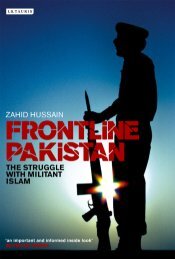Who Owns Pakistan - Yimg
Who Owns Pakistan - Yimg
Who Owns Pakistan - Yimg
Create successful ePaper yourself
Turn your PDF publications into a flip-book with our unique Google optimized e-Paper software.
The document " Promises and Performance" also observed that " the<br />
nationalization of financial institutions, in effect meant the end of influence over<br />
them by industrial groups which had the potential to establish monopolies, in<br />
various sectors of economy ". Moreover it said Monopoly Control Authority (MCA)<br />
was keeping a strict watch over the industries to ensure that monopolies do not<br />
develop.<br />
Impact of Nationalization on <strong>Pakistan</strong>'s Economic<br />
Development<br />
" We would have had the likes of Birlas and Tatas but for<br />
nationalization."<br />
Nasim Saigol, Interview with Business Today, India. March 22-April 6,1992<br />
" Had we gone at the rate of growth during the decade of 1960's, I<br />
reckon we would have definitely been an Asian tiger by now"<br />
Abdul Hameed. M. Dadabhoy, Interview with Daily Dawn<br />
September 9, 1995.<br />
Bhutto's nationalization broke some of the 22 families financially but several of<br />
them were also broken in body and spirit, with the result that they disposed off<br />
industaries that escaped nationalization or self-imposed a moratorium on new<br />
projects. Farooq A Shaikh of Colony group, one of the major affectees of<br />
nationalization remarked in an interview with author that top <strong>Pakistan</strong>i<br />
industrialists not just lost industrial units to Bhutto's nationalization policy, they<br />
lost the urge to invest in <strong>Pakistan</strong>.<br />
" We concluded regretfully that it was a bad judgement on the part of our group to<br />
have remained exclusively confined to <strong>Pakistan</strong>. It was like putting all the eggs in<br />
one basket", he said while noting that several industrialists particularly those from<br />
Karachi had resorted to flight of capital, ahead of Bhutto's nationalization and<br />
were able to comfortably live out the Bhutto era in Europe or United States on<br />
business ventures set up there.<br />
Karachi based business communities of Memons, Khojas and Bhoras had led the<br />
first wave of industrial development in <strong>Pakistan</strong> but it were they who suffered<br />
most in the seperation of East <strong>Pakistan</strong> and Bhutto's nationalization. These<br />
business communities had been seasoned by persecutions of different types in<br />
their abodes in India and elsewhere, particularly, Burma, and therefore, they<br />
responded in the only way that was expected in such a situation , i.e switch over<br />
investment and move abroad. It is not surprising that several leading industrial<br />
families of the 1970 era have not set up a single big industrial project in 25 years<br />
since nationalization.<br />
20













